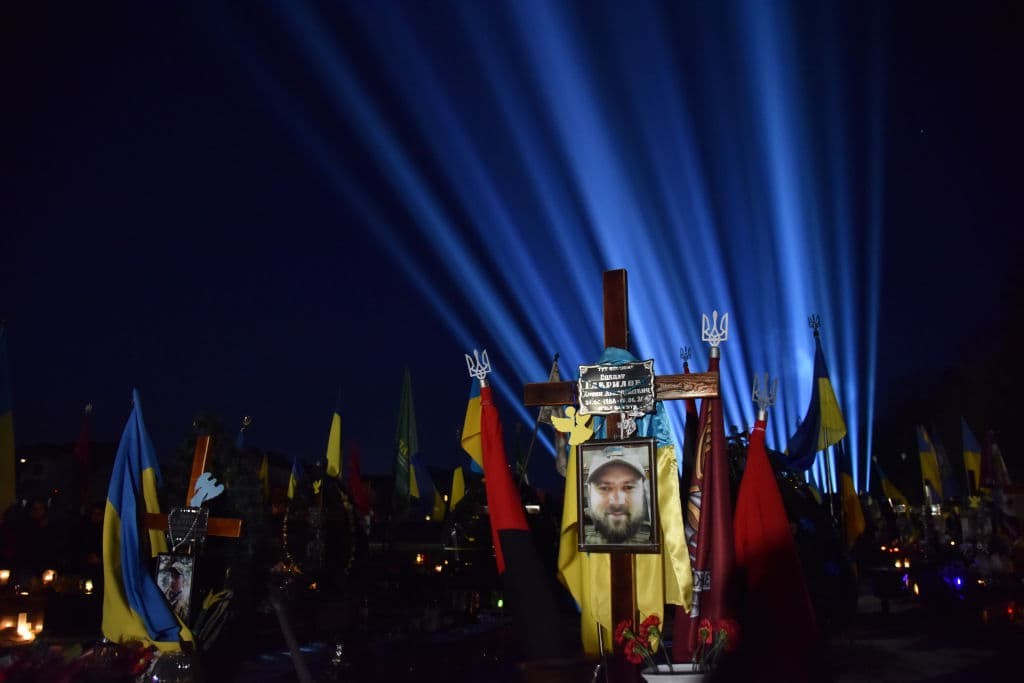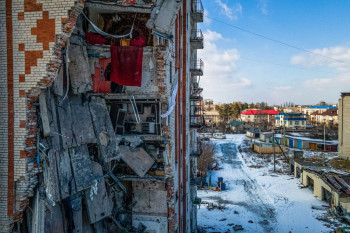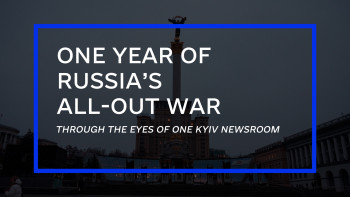Eugene Czolij: Ukraine’s two anniversaries must be recognized and acted upon

Editor's Note: The opinions expressed in our op-ed section are those of the authors and do not purport to reflect the views of the Kyiv Independent.
This month marks both the ninth year of Russia’s military aggression against Ukraine, which started on Feb. 20, 2014, when Russia’s “little green men” invaded Crimea, as well as the first year of Russia’s all-out war against Ukraine that began on Feb. 24, 2022, and – according to the Kremlin and several Western pseudo experts – was supposed to last about three days.
On April 12, 2022, U.S. President Joe Biden qualified the atrocities Russia committed during this war against Ukraine as “genocide.” He later explained, "I called it genocide because it’s become clearer and clearer that Putin is just trying to wipe out even the idea of being Ukrainian.”
Two weeks later, on April 27, 2022, Canada’s House of Commons unanimously adopted a motion recognizing that the “Russian Federation is committing acts of genocide against the Ukrainian people.”
Several other countries, including the Czech Republic, Estonia, Latvia, Lithuania, Poland, and Ireland, have also recognized this genocide through acts of their parliaments.
This modern-day genocide started on the 90th anniversary of another genocide committed by Russia against Ukraine, namely the Holodomor when the Kremlin starved millions of Ukrainians to death.
On Dec. 9, 1948, the UN General Assembly approved the Genocide Convention and, since then, 152 countries have ratified it and undertook “to prevent and to punish” genocide.
During the past year, many of those countries have helped Ukraine defend its territorial integrity, but – as a retired U.S. general has recently indicated – the response of the United States to Ukraine’s urgent appeals for the supply of weapons to help it defend itself has been: “No, No, No … Yes.”
The main reason for such procrastination and wavering by NATO member countries is that their predisposition to support Ukraine has been overshadowed by their desperate efforts “not to escalate” the war beyond Ukraine’s borders.
This short-sighted approach ignores the fact that, on Feb. 22, 2022, Putin stated that a so-called “special military operation” would be launched against Ukraine to address his obsessive perception that the U.S. and NATO would otherwise conduct a preemptive strike on Russia’s missile systems with Ukraine serving “as a foothold for such a strike.”
Moreover, in his state of the nation address on Feb. 21, 2023, Putin accused the West of starting Russia’s all-out war against Ukraine, claiming that Russia is using force to stop it.
This clearly demonstrates that Putin perceives the U.S. and NATO as imminent threats and that Russia will go beyond Ukraine’s borders if Ukraine cannot secure them.
Sadly, all the delays by NATO member countries to deliver the necessary weapons to Ukraine have been fully exploited by Russia, causing tremendous human suffering in Ukraine and the enormous destruction of its cities and villages.
Indeed, on Jan. 3, 2023, Ukraine’s Prime Minister Denys Shmyhal stated during a government session that the damages caused by Russia’s all-out war against Ukraine already surpass the daunting amount of $700 billion (USD).
Amazingly, notwithstanding Russia’s repeated genocidal acts against Ukraine, the determination of the Ukrainian people to defend their country has strengthened, and their conviction that Ukraine will restore its internationally recognized 1991 borders has intensified.
At this stage, NATO member countries should not only recognize the heroism and remarkable resilience of the Armed Forces of Ukraine and its population, but supply Ukraine with all the necessary weapons to win the war as soon as possible and limit further human suffering.
Hopefully, the historic trip to Ukraine by the President of the United States on Feb. 20, 2023, will pave the way for the international community to stop hesitating and take immediate, bold, and decisive steps to enable a speedy victory for Ukraine, and restore peace, security, and stability in the world.












